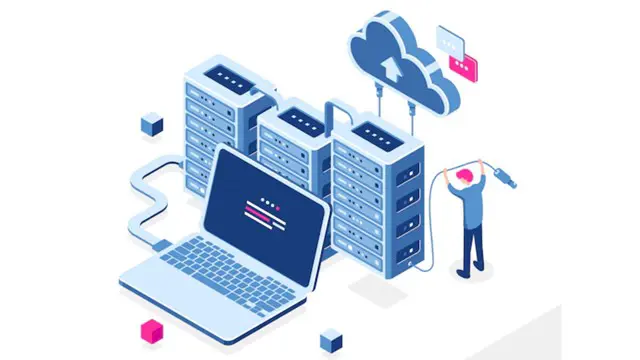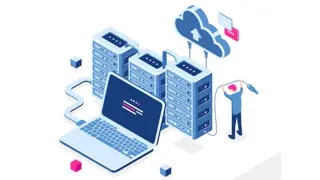
Bundle Multi (2-in-1) - SAP CPI
Self-paced videos, Lifetime access, Study material, Certification prep, Technical support, Course Completion Certificate
Uplatz
Summary
- Reed courses certificate of completion - Free
- Uplatz Certificate of Completion - Free
Add to basket or enquire
Overview
This is the Bundle Multi (2-in-1) – SAP CPI course by Uplatz consisting of self-paced training (pre-recorded) videos from two different instructors on the SAP CPI (Cloud Platform Integration) module. You will be awarded Course Completion Certificate at the end of the course.
These are two different complete sets of courses on SAP CPI.
1. SAP CPI (Cloud Platform Integration)
2. SAP CPI (basic to advanced)
SAP Cloud Platform Integration is a flexible tool for integrating enterprise systems with external cloud and On-premise applications. Suitable for SAP and non-SAP.
Applications exchange data using cloud modules. Each module contains a ready-made integration scenario, for example, automatic sending of VAT data from SAP S/4HANA enterprise to the system of a supervisory authority. Performance of the cloud module is supported by its developer, so the customer is not responsible for the equipment, maintenance and administration of the module, but only pays for subscription.
SAP Cloud Platform Integration Training aims at explaining the operating model, web-based monitoring, APIs for monitoring, B2B support, content transport, and technical landscape of SAP Cloud Platform. Specially designed for designers, developers, and engineers, this course gives hands-on experience on the fundamentals of SAP CP Integration and the process of creating integration flows.
Application Consultants, Business Process Architects, Business Process Owners, Team Leads, Power Users, Developers, Development Consultants, Solution Architects, System Architects, and Technology Consultants can go for this training.
In its successful completion, you will be able to work with iFlows and Adapters; use Prepackaged Content; explain Security Aspects and Monitoring; describe SAP Cloud Platform Integration; and use required processes, operations, and tools for SAP Cloud Platform.
SAP Cloud Platform is a cloud-based tool to develop and deploy custom applications. This includes full range of service catalog including database, storage and backup of data, reporting service and transaction layer to develop multi-platform software development. This tutorial gives you a comprehensive coverage of concepts of SAP Cloud and makes you comfortable to use it in your software development projects.
Curriculum
Course media
Description
Bundle Multi – SAP CPI – Course Syllabus
SAP Cloud Platform Integration Course Syllabus
- Introduction to SAP Cloud Platform Integration
- Explore the SAP Cloud strategy
- Explain the positioning of SAP Cloud Platform Integration in the SAP
- Cloud strategy
- Explain the positioning within the Application Integration and Infrastructure
- Perform a classification according to ISA-M
- Explore use cases
- Product Overview
- Explain the integration Platform-As-A-Service
- Explain the architecture
- Get an overview about integration capabilities
- Explain connectivity and converter options
- Use development tools
- Basic Building Blocks of an Integration Scenario
- Explain the main phases of an integration project
- Explore the elements of an integration flow
- Use SAP Cloud Platform Integration, integration patterns
- Twitter Basic Scenario, Foundation
- Explore the complete sample process
- Configure inbound communication
- Configure outbound communication
- Use events
- Use persistence
- Twitter Basic Scenario, Advanced
- Use calls in an advanced integration scenario
- Explain the camel message model
- Manipulate the message with message transformers
- Explain message converters
- Use mappings
- Use XST mappings
- Twitter Scenario, Extended
- Define message routers
- Explain scripting in message processing
- Define additional components
- Specify the runtime configuration
- Concepts of Secure Communication
- Explain secure communication
- Explore concepts of secure communication
- Explain security elements related to the mail adapter
- Explain the relation of security artifacts to integration flow configuration
- Other Security Aspects
- Explain the technical landscape
- Explain data storage security
- Perform user management for cloud integration
- Add members to an account
- Operations and Monitoring
- Explain the operating model
- Explain web-based monitoring
- Explain APIs for monitoring
- Additional Topics
- Perform the complete never bounce process
- Explain content transport
- Explain B2B support
- Design cloud integration content for SAP Process Orchestration 7.5 SP10
SAP Cloud Platform Integration (basic to advanced) -
Course Syllabus
- iFlow Objects
- Security
- Intelligent Enterprise
- Cloud Native Application Development
- Operations and Monitoring
- Introduction to SAP Cloud Platform Integration
- Product Overview
- Basic building blocks
Who is this course for?
Everyone
Requirements
Passion to learn and succeed!
Career path
- SAP Cloud Consultant
- SAP CPI Consultant
- Cloud Engineer
- SAP Cloud Platform Architect
- Integration Engineer
Questions and answers
Currently there are no Q&As for this course. Be the first to ask a question.
Certificates
Reed courses certificate of completion
Digital certificate - Included
Will be downloadable when all lectures have been completed
Uplatz Certificate of Completion
Digital certificate - Included
Course Completion Certificate by Uplatz
Reviews
Currently there are no reviews for this course. Be the first to leave a review.
Legal information
This course is advertised on reed.co.uk by the Course Provider, whose terms and conditions apply. Purchases are made directly from the Course Provider, and as such, content and materials are supplied by the Course Provider directly. Reed is acting as agent and not reseller in relation to this course. Reed's only responsibility is to facilitate your payment for the course. It is your responsibility to review and agree to the Course Provider's terms and conditions and satisfy yourself as to the suitability of the course you intend to purchase. Reed will not have any responsibility for the content of the course and/or associated materials.


